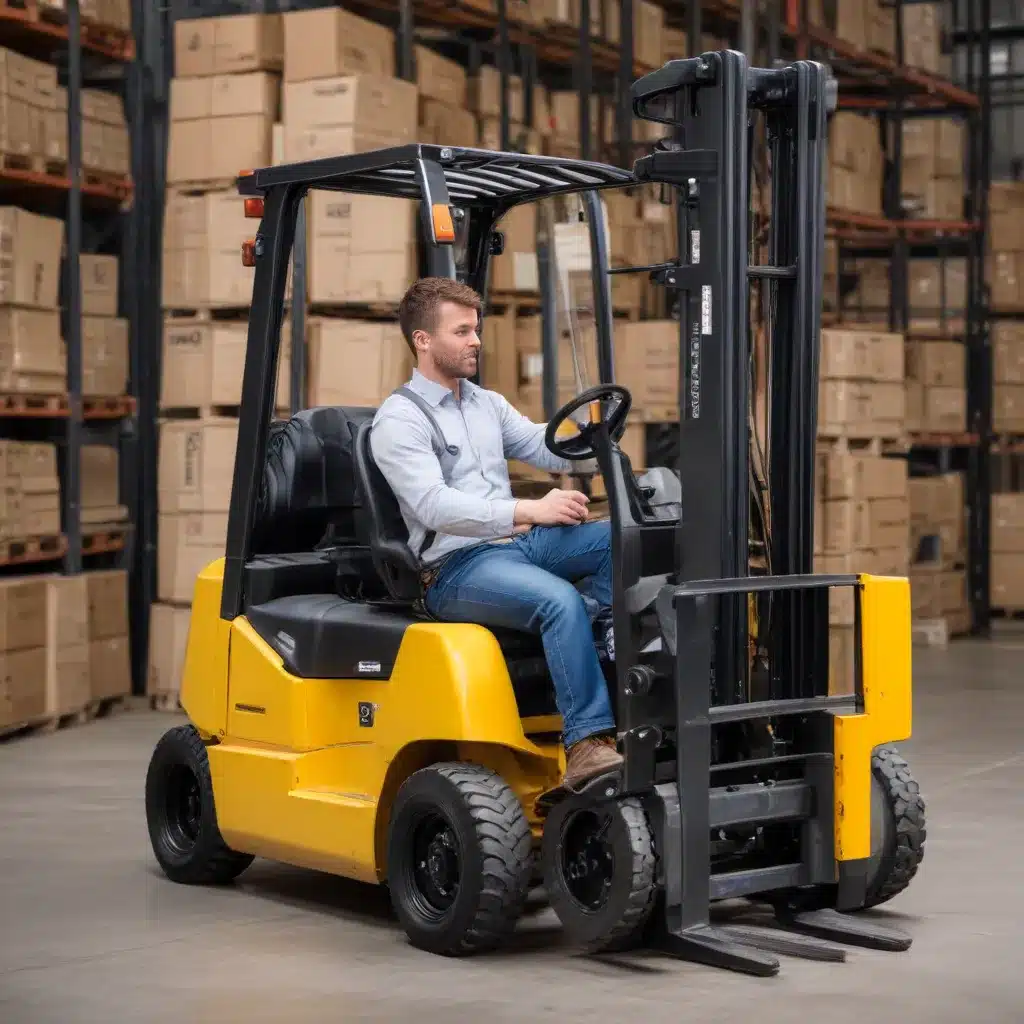
The Importance of Emotional Intelligence for Forklift Operators
As a seasoned industry expert in forklifts, warehousing, and logistics, I’ve come to understand the critical role that emotional intelligence (EQ) plays in the success and safety of forklift operators. While technical skills and operational knowledge are undoubtedly essential, the ability to effectively navigate interpersonal dynamics and understand one’s own emotional responses can make all the difference in the fast-paced, high-stakes environment of materials handling.
Forklift operators are responsible for the seamless movement of goods, the safety of their team, and the efficient flow of operations. However, these tasks often require navigating complex social and emotional landscapes. Operators must communicate effectively with supervisors, coordinate with warehouse staff, and respond calmly to unexpected challenges. Developing strong emotional intelligence can equip these professionals with the tools they need to excel in their roles and contribute to a safer, more productive workplace.
Understanding Emotional Intelligence
Emotional intelligence, as defined by psychologist Daniel Goleman, is the ability to recognize and manage one’s own emotions, as well as the emotions of others. This multifaceted construct encompasses self-awareness, self-regulation, motivation, empathy, and social skills. For forklift operators, honing these skills can have a profound impact on their performance and the overall success of their organizations.
Self-Awareness
At the core of emotional intelligence is self-awareness – the ability to recognize one’s own emotions, strengths, weaknesses, and the impact they have on their behavior. Forklift operators who are self-aware can better understand their triggers, manage their stress levels, and make informed decisions in high-pressure situations.
Self-Regulation
Closely linked to self-awareness is self-regulation – the capacity to control one’s impulses and emotions. Forklift operators who can effectively manage their reactions, whether it’s to a tight deadline or a confrontational situation, are better equipped to maintain composure and make rational choices, ultimately contributing to a safer work environment.
Empathy
Empathy, the ability to understand and share the feelings of others, is a crucial skill for forklift operators. By cultivating empathy, these professionals can better anticipate the needs of their co-workers, communicate more effectively, and foster a collaborative, supportive work culture.
Social Skills
Effective interpersonal skills, such as active listening, clear communication, and conflict resolution, are essential for forklift operators. These social skills enable them to build strong relationships with their colleagues, work cohesively as a team, and navigate the complex social dynamics inherent in a busy warehouse or logistics setting.
Enhancing Emotional Intelligence through Training
Recognizing the importance of emotional intelligence in the forklift industry, many organizations are investing in targeted training programs to help their operators develop these critical skills. These programs often incorporate a combination of classroom instruction, interactive workshops, and real-world practical exercises.
Self-Awareness Exercises
Forklift operators can engage in self-reflection exercises, such as journaling or personality assessments, to gain a deeper understanding of their emotional patterns, biases, and triggers. This self-awareness can then be leveraged to develop more effective coping strategies and decision-making processes.
Stress Management Techniques
Forklift operations can be inherently stressful, with tight deadlines, heavy loads, and the constant need to be vigilant. Training programs often incorporate mindfulness practices, relaxation techniques, and strategies for managing stress and anxiety, equipping operators with the tools they need to maintain composure in high-pressure situations.
Interpersonal Communication Workshops
Effective communication is the cornerstone of strong interpersonal relationships. Forklift operators can participate in workshops that focus on active listening, conflict resolution, and collaborative problem-solving. These skills enable them to navigate the social dynamics of the workplace, build trust with their colleagues, and foster a more cohesive and productive work environment.
Mentorship and Feedback
Many organizations have implemented mentorship programs, pairing experienced forklift operators with newer hires. These mentors can provide valuable guidance, real-world insights, and constructive feedback, helping to develop the emotional intelligence of younger or less experienced operators.
Continuous Learning and Development
Emotional intelligence is not a static trait but rather a set of skills that can be continuously honed and improved. Successful organizations ensure that their forklift operators have access to ongoing training, workshops, and professional development opportunities to enhance their emotional intelligence and adapt to the evolving demands of the industry.
The Impact of Emotional Intelligence on Forklift Operations
The benefits of investing in emotional intelligence training for forklift operators are far-reaching and can have a significant impact on organizational success.
Improved Safety
Forklift operators with high emotional intelligence are better equipped to identify and respond to potentially hazardous situations. By understanding their own emotional responses and those of their colleagues, they can make more informed decisions, anticipate potential conflicts, and promote a culture of safety within the workplace.
Enhanced Productivity and Efficiency
Forklift operators with strong emotional intelligence skills are often more adept at navigating the social dynamics of their work environment. This allows them to collaborate more effectively, resolve conflicts quickly, and maintain a positive, motivated team, ultimately leading to increased productivity and operational efficiency.
Reduced Turnover and Improved Employee Retention
Forklift operators who feel supported, understood, and valued are more likely to remain with an organization long-term. Emotional intelligence training can foster a sense of belonging and job satisfaction, contributing to lower turnover rates and a more experienced, stable workforce.
Competitive Advantage
In an industry often focused on technical skills and operational expertise, organizations that prioritize the development of emotional intelligence among their forklift operators can gain a significant competitive advantage. These companies are better equipped to attract and retain top talent, foster a positive work culture, and deliver exceptional customer service.
Conclusion
As the forklift industry continues to evolve, the importance of emotional intelligence for operators cannot be overstated. By investing in targeted training programs that develop self-awareness, self-regulation, empathy, and interpersonal communication skills, organizations can empower their forklift operators to excel in their roles, contribute to a safer and more productive work environment, and ultimately, drive the success of the business.
To learn more about the Forklift Reviews blog and explore our comprehensive resources on forklift safety, maintenance, and industry trends, please visit our website.

